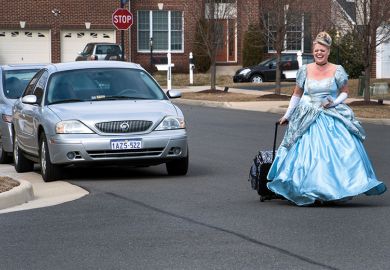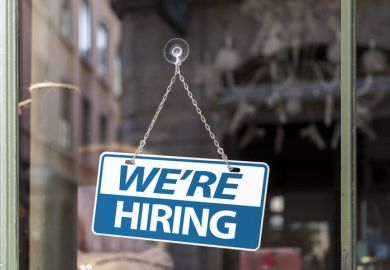A higher education system that is increasingly obsessed with vocational outcomes is “neither just nor efficient”, a government adviser on skills has warned.
Baroness Wolf said such a shift was “incredibly one-dimensional” and that apprenticeships need to be revived as a genuine alternative in the UK.
Baroness Wolf, the Sir Roy Griffiths professor of public sector management at King’s College London and an adviser to the UK government on levelling-up and skills policy, outlined what she called the “paradox of vocational education” in an address at the London School of Economics and Political Science on 7 December.
“Higher education is increasingly seen either in terms of its immediate contribution to people’s wages in the labour market today or, in the case of research, in terms of longer-term benefits to society,” she said.
“Those are not bad things and why wouldn’t one want oneself or one’s children to do better in life? But it is a profound shift towards a single-purpose view of higher education.”
She said that John Henry Newman’s Idea of a University theory that institutions should educate the mind has vanished – for better and for worse, with politicians of all parties appearing to put all their attention on outcomes-based achievements.
The cross-bench peer said vocational education has triumphed within universities – and this is supported by parents, the government and students, who mostly take vocational subjects that they think will be highly relevant to them in the job market.
At the same time, other methods of vocational education are “disintegrating” around the world, she said, which leads to degrees being increasingly perceived as a gateway qualification to the modern labour market. This, Baroness Wolf added, is an “incredibly one-dimensional way of selecting people”, which is “neither just nor efficient”.
Universities are expensive to individuals and to society, and they come at a cost for employers because they will end up hiring a lot of people without the right sort of skills they need, she added.
Baroness Wolf said politicians often announce their ambition of making school-based vocational and academic education equal, but in an always-competitive landscape, this will not work.
“If what we’re trying to do is to create environments which develop vocational and technical skills in a really good way, then what you have to do is set up something which is a clear alternative, with its own prestige hierarchy and is not claiming to be the same as the university. You’ve got to create an alternative set of options with their own prestige and hierarchy.”
One option Baroness Wolf proposed would be to set up selective, highly specialised technical institutions for more mature students, while another would be through the apprenticeship route.
“Because it doesn’t pretend to be just another form of education, it can and, in many cases, does provide an alternative to an increasingly hierarchical higher education system," she said.
“This can be a phenomenally successful preparation for life and career because it is not university; it’s something completely different.”
Register to continue
Why register?
- Registration is free and only takes a moment
- Once registered, you can read 3 articles a month
- Sign up for our newsletter
Subscribe
Or subscribe for unlimited access to:
- Unlimited access to news, views, insights & reviews
- Digital editions
- Digital access to THE’s university and college rankings analysis
Already registered or a current subscriber? Login








